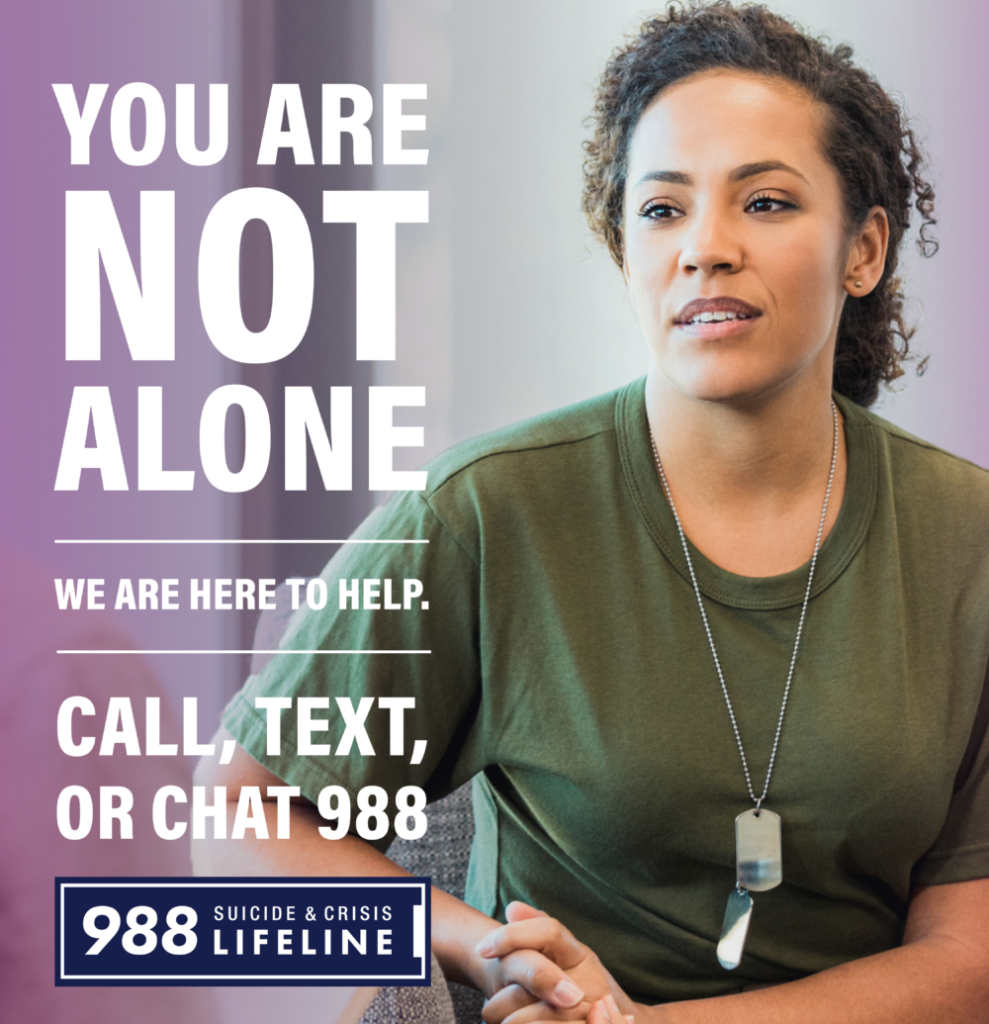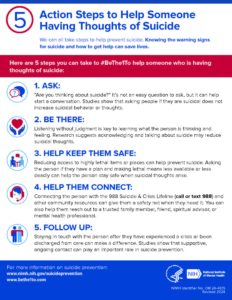September is Suicide Prevention Month
Behavioral Health professional provides tips to possibly save the life of a loved one
September is Suicide Prevention Month and while suicide can bring up deep emotions, learning more about it and what to do if you or someone you know experiences suicidal thoughts can make it easier to approach. Affinia Healthcare’s Allison Andrelchik, Behavioral Health Specialist & Licensed Clinical Social Worker, is sharing the following tips to help someone who may be considering suicide.
So what is suicide?
Suicide is when people harm themselves with the goal of ending their life. A suicide attempt is when people harm themselves with the goal of ending their life, but they do not die.
Suicide is the 16th leading cause of death in Missouri, resulting in three people dying every day by suicide in the state. And in 2021 there were nearly two times as many suicides (48,183) in the United States as there were homicides (26,031).
Suicidal thoughts and behaviors should be considered a psychiatric emergency.
Does asking someone about suicide put the idea in their head?
No. Studies have shown that asking people about suicidal thoughts does not cause or increase such thoughts. Asking someone directly, “Are you thinking of killing yourself?” can be the best way to identify someone at risk for suicide.
Who is at risk for suicide?
People of all genders, ages, and ethnicities can be at risk for suicide. The main risk factors for suicide are:
- A history of suicide attempts
- Depression, other mental disorders, substance use disorders, or chronic pain
- Family history of suicide, a mental disorder or substance use
- Presence of guns or other firearms in the home
Warning signs of people at risk for suicide:
- Talking about wanting to die or to kill oneself
- Talking about feeling trapped or feeling that there are no solutions
- Talking about being a burden to others
- Increasing the use of alcohol or drugs
- Acting anxious or agitated, behaving recklessly
- Looking for a way to kill oneself, such as searching online or buying a gun
- Withdrawing from family and friends or feeling isolated
- Giving away important possessions
- Saying goodbye to friends and family
- Displaying sudden and uncharacteristic calm
Now that we know what and who is at risk for suicide, what can we do to help?
As we learned earlier, asking about suicide does not put the thought or desire into someone’s head. So if you suspect that a family member or friend may be considering suicide, talk to them about your concerns. You can begin the conversation by asking questions in a non-judgmental and non-confrontational way. During the conversation, make sure you stay calm and speak in a reassuring tone, acknowledge that their feelings are valid, and offer support and encouragement.
What to do and how to help in a crisis:
- Take the person seriously if they express suicidal thoughts
- Remove lethal means in the area (weapons, guns, substances, etc.)
- Call a suicide prevention hotline by dialing 988 from any phone
- Stay calm and sit with them until help arrives or take them to the nearest emergency room
The Affinia Healthcare Behavioral Health department provides psychological and psychiatric care to support positive mental health in adults and children.
The Behavioral Health department has recently expanded and has immediate openings for youth (children 18 years and under). Adult patients must have a referral from an Affinia Healthcare primary care provider to receive behavioral health services. Affinia Healthcare accepts Medicaid, Medicare, and most private insurances. Sliding scale pay is available for uninsured patients.



